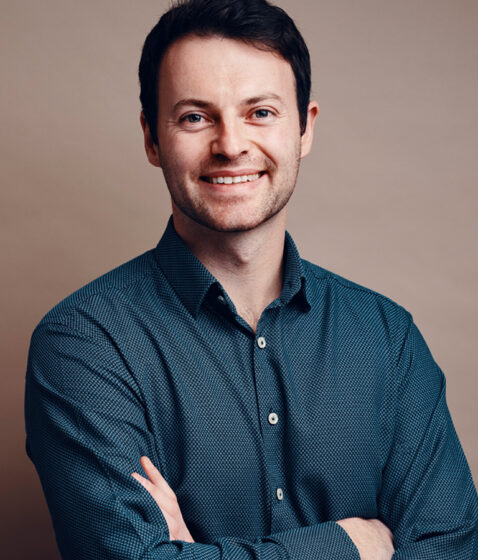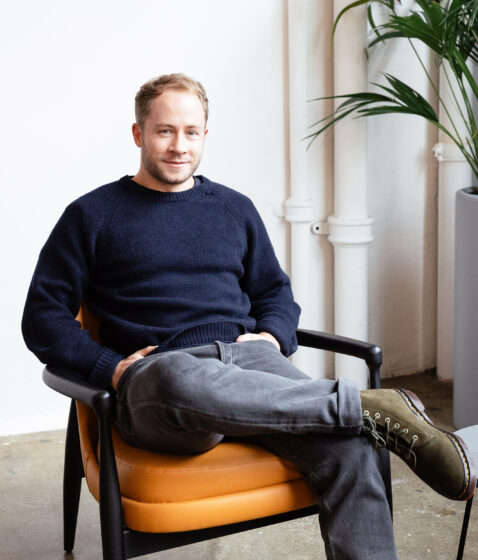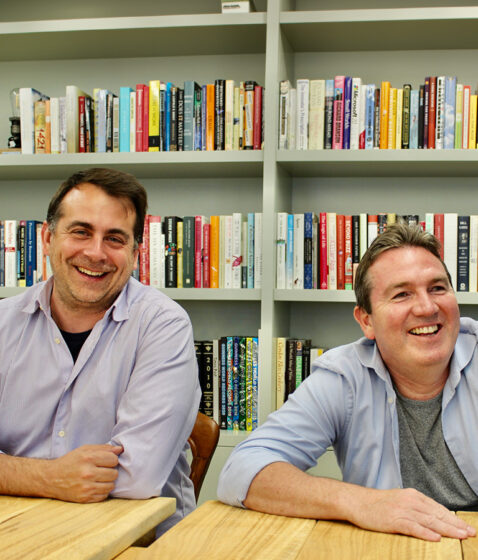The wagestream founders explain how the company is improving the financial health of people in work.
Tell us about your vision, and the social problem you’re solving?
The financial system is stacked against 75% of the working world. Our mission is to fix that and make work financially inclusive, fair and rewarding. We do that with a financial wellbeing app designed for frontline workers, built around their pay, and founded with a group of leading financial charities.
We increasingly live in a fintech-powered world. Yet, the benefits aren’t evenly distributed. The upsides of fintech have mostly accrued to well-paid knowledge workers, while front-line workers continue to be ignored or marginalised. The bottom 50% of earners live paycheck to paycheck, but pay more for credit, insurance, advice, and savings than the top 50% of earners.
We’re solving the problem by providing an increasingly broad set of fairer financial services, all through the employer and one smartphone app. By delivering fairer financial services through employers, we can replace financial stress with financial control and wellbeing. And by giving workers a fairer financial system to build their lives around, we can build a better working world that’s underpinned by happy, healthy, financially-empowered people.
How do you ensure Wagestream is having a positive societal impact, as a business?
We’re a social business by nature – so in some ways, we don’t have a choice! The business operates on a social charter that holds us accountable to improving the lives of front-line workers, and prohibits us from offering any unfair financial products that do not measurably contribute to their financial wellbeing.
That charter means we have a dual responsibility: improve people’s lives, and grow a commercially sustainable business that can help more people at scale.
Some might assume that means our day-to-day is about making trade-offs, but more often the two challenges are symbiotic. Having to focus on impact has forced us to get closer to our users, understand their day-to-day lives, and constantly measure what impact our features have. It’s also pushed us to take on a lot of external guidance: from charity partners advising on a set of Fair Financial Products principles that guides the products we offer and partners we choose to work with; to setting up a Customer Advisory Board and co-creating our product roadmap with employers; to working with regulators and peers on a Code of Conduct for our industry.
How do you measure that progress? And what have you found most difficult?
That dual focus has also led to Wagestream becoming quite a research-driven business – which, in turn, has had a huge impact on the product we build and the way we grow. Measuring our social progress now ranges from:
Making a daily difference – sharing almost real-time updates internally, so the team can see the difference they’ve made that day. Maybe 55 users started saving for the first time that day, or 150 people didn’t have to take out a predatory loan because of access to their income, for example.
Quarterly health-checks – we’ve built a financial health-check feature into the app so that users can set goals, see relevant content and tools, and begin improving their financial health over time
Bi-annual impact assessments – we’ve taken the decision to publish most of our data externally, sharing bi-annual reports that chart the usage, perceived and behavioural impact of Wagestream on our users’ day to day lives. Becoming the first provider in our sector to do this sent an important signal to our team, our customers, our investors and the wider sector
Closing the loop – by reporting on aggregate social impact to our investors, and using the data to help inform our roadmap decisions
How does that impact framework interact with teams across the business and your future goals?
It cuts right to the core of the business, at product level. Our product roadmap, for example, is built around the concept of building positive financial pathways – helping guide people towards financial wellbeing and empowering them with a set of tools and fairer products that give them choice and control. We consistently find that being so focused on impact has positive effects right across the business, though.
It means we are more disciplined on the problems we solve, we make decisions for the right reasons, we can hire people who are more passionate, we’re more discerning about the investors and partners we work with, and we’re seen by employers and end-users as a more trustworthy provider. We even find it leads to more positive relationships with stakeholders like regulators, analysts and the media – because our values and our agenda are clear from the outset.
We believe passionately that by scaling an industry-leading technology company which achieves ‘profit with purpose’, we’ll be able to inspire more like-minded founders and encourage more investment in purpose-driven technology companies.
What about the role of ESG – how is that impacting your company’s growth?
We have our own ESG policy that we review regularly, and codes of practice that hold our extended partner network accountable. But ESG – and the broader movement towards more corporate responsibility – really come into their own, when we look at how the Wagestream business is growing. More and more, it’s on employers’ radar – they know they have to do the right thing as a corporate citizen and they know that ‘ticking the box’ on CSR is no longer enough. The health of their workforce – a key social stakeholder group – is now a top priority at boardroom level; and now that data shows financial health is intrinsically linked to mental and physical health, choosing a financial wellbeing provider like Wagestream is no longer a ‘nice to have’. It’s necessary and urgent.
And finally, what’s next?
The mission is the same: improve the financial health of hundreds of millions of people.
Over the next couple of years, that will mean:
- Building out a broader set of fair financial services for workers to access, all built around fair and flexible pay
- Bringing financial wellbeing to people in more countries, supporting our growing teams in the United States, Australia and Spain
- Bringing peers, policymakers, regulators, researchers and employers together, working together to solve more problems and share insights and data through research efforts like our bi-annual Impact Assessment









